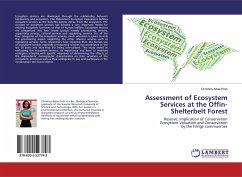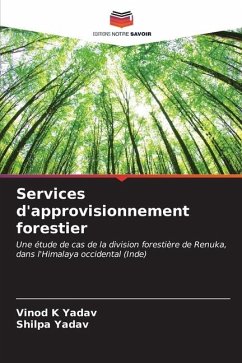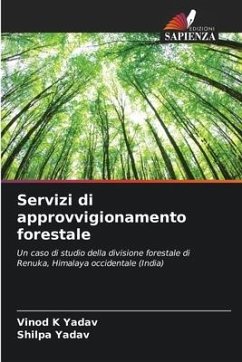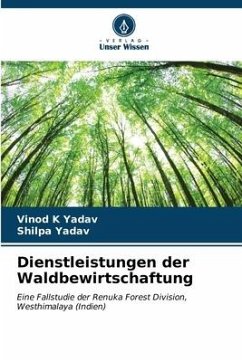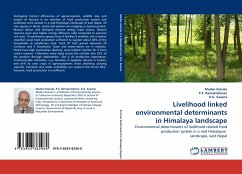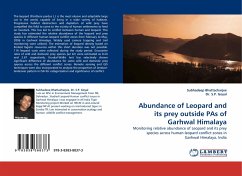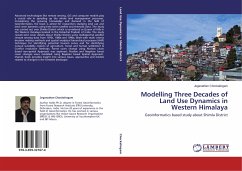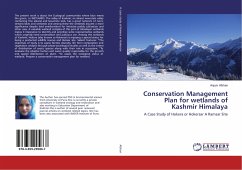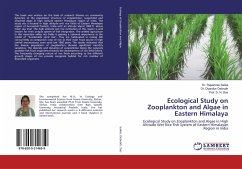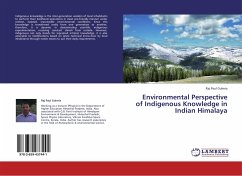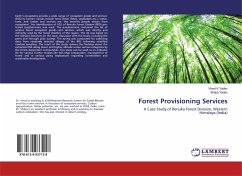
Forest Provisioning Services
A Case Study of Renuka Forest Division, Western Himalaya (India)
Versandkostenfrei!
Versandfertig in 6-10 Tagen
27,99 €
inkl. MwSt.

PAYBACK Punkte
14 °P sammeln!
Earth's ecosystems provide a wide range of 'ecosystem goods and services' (EGS) to human. Goods include food (meat, fishes, vegetables etc.), water, fuels, and timber and services are 'the benefits people obtain from ecosystems'. For Identification of EGS of Renuka Forest Division (RFD) pre-tested questionnaire was used. The questionnaire contained the list of various forest ecosystem goods and services, which was directly and indirectly used by the forest dwellers of the region. The list was based on the relevant literature on the issue, discussion with the locals, including the peers and thr...
Earth's ecosystems provide a wide range of 'ecosystem goods and services' (EGS) to human. Goods include food (meat, fishes, vegetables etc.), water, fuels, and timber and services are 'the benefits people obtain from ecosystems'. For Identification of EGS of Renuka Forest Division (RFD) pre-tested questionnaire was used. The questionnaire contained the list of various forest ecosystem goods and services, which was directly and indirectly used by the forest dwellers of the region. The list was based on the relevant literature on the issue, discussion with the locals, including the peers and through pilot surveys. The survey was conducted for collecting data from randomly selected villages of the RFD following stratified random sampling. The result of this study reviews the findings about the extracted EGS along lower and higher altitude under various categories by the forest dependent communities. This study can be used as an indicator list for various further studies like EGS Mappreparation, management of forest and in various policy implications regarding conservation and sustainable development.



